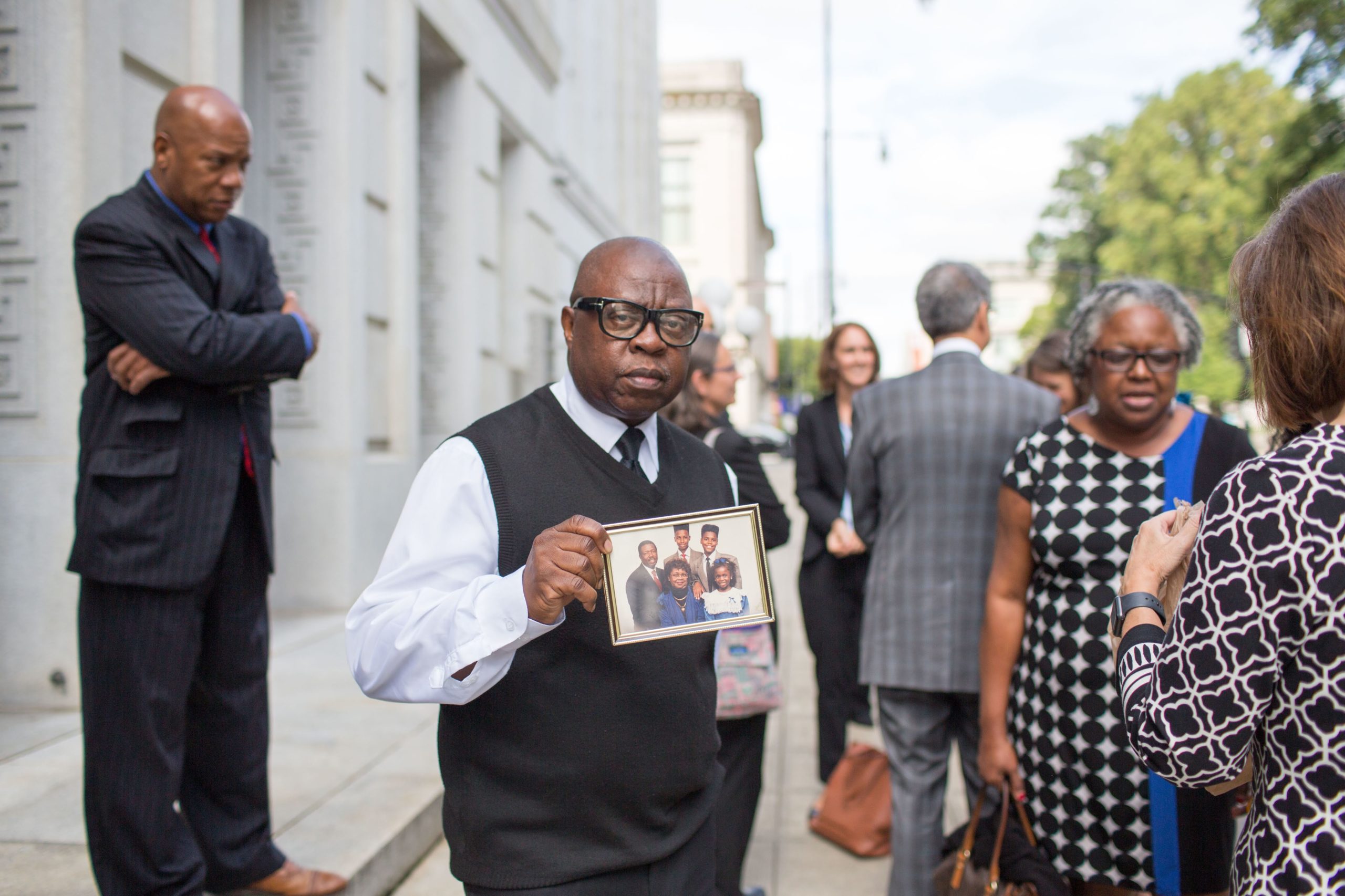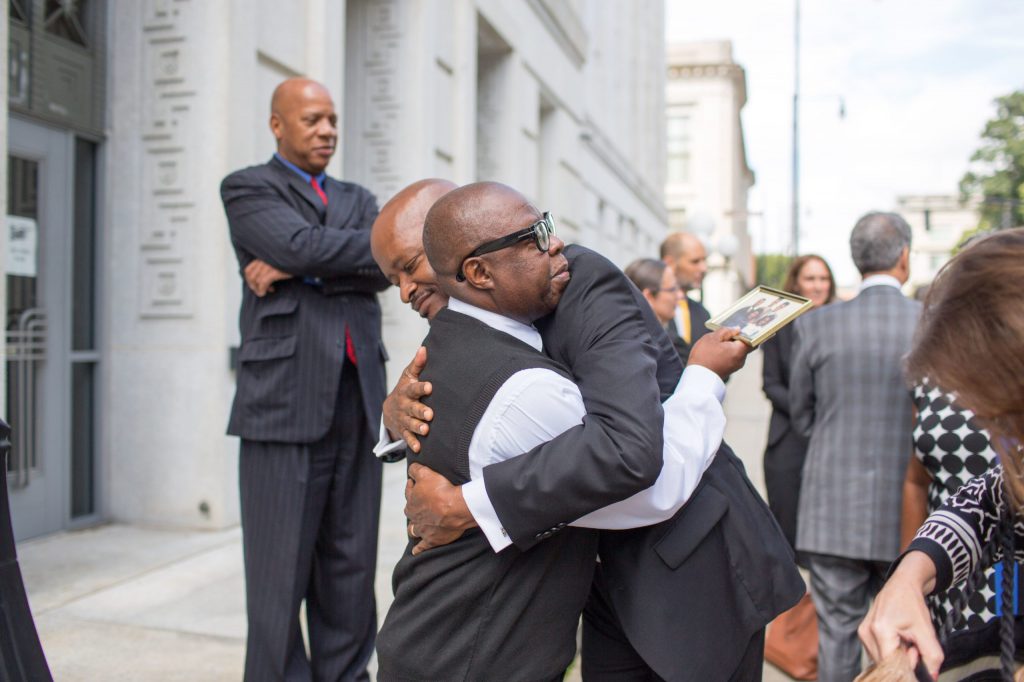
On Friday, September 25th, 2020, Christina Walters, Quintel Augustine, and Tilmon Golphin were resentenced from death to life without parole. The North Carolina Supreme Court ruled that they had been unconstitutionally returned to death row after receiving life sentences under the state’s Racial Justice Act. The decisions in their cases are based on the state constitution and cannot be appealed.
“Hallelujah!” cried Sylvia Golphin, Tilmon’s mother, upon hearing the news. Her brother, Willie McCray added, “Justice is not always perfect, and it’s often slow. We see people fall through the cracks; we know it happens–just look at Breonna Taylor. But today, for my family, this time justice came through.”
This decision marked the final rulings in a series by the state Supreme Court, which affirmed that rights granted under the 2009 Racial Justice Act had been wrongly taken away from death-sentenced people who have brought forward evidence of racial discrimination in their trials and sentences.
LeRoi Brashears, a friend of Tilmon’s, said, “In these days, this is a badly-needed reaffirming symbol of the possibilities of extracting justice out of our system. I’m grateful for the Court saw fit to make it happen in this case.”
From CDPL’s Press Release:
“We are grateful to the court for upholding the law that says a person cannot be sentenced to death twice for the same crime,” said CDPL Senior Staff Attorney David Weiss. “Our clients proved that race was a major factor in their death sentences. Their evidence has never been disputed, and they never should have been sent back to death row.”
The North Carolina legislature passed the Racial Justice Act in 2009. It led to a statewide study showing that, in capital trials, prosecutors dismissed Black citizens at 2.5 times the rate they excluded whites. This disparity was driven entirely by race and could not be attributed to any other factor, such as death penalty views. It also found that crimes with white victims were twice as likely to be punished with death.
Walters, Augustine, and Golphin — along with Marcus Robinson, who was resentenced to life in August — were the only four death row prisoners to have Racial Justice Act hearings before the law was repealed in 2013. All four won their cases, using the study to show a pattern of race discrimination in North Carolina capital cases. The defendants also unearthed prosecutors’ notes referring to jurors with denigrating terms like “blk wino,” and training materials showing that their prosecutors had been instructed on how to invent “race-neutral” reasons to justify their strikes of Black jurors.
In 2012, Cumberland County Superior Court Judge Gregory Weeks resentenced all four to life without parole after finding a “wealth of evidence” that systemic exclusion of Black jurors had tainted their death sentences. However, after the repeal of the Racial Justice Act, the N.C. Supreme Court overturned Weeks’ ruling on procedural grounds, saying the hearings should have been held separately rather than jointly and that prosecutors should have had more time to prepare their case, even though the trial court had already given the state two continuances. The court ordered new RJA hearings for the four defendants, and in a legally questionable move, the N.C. Department of Public Safety quickly returned them to death row.
Now, the Supreme Court has ruled that the reinstatement of their death sentences was unconstitutional and has restored life sentences for all four.
In a separate ruling in June, the court also said that all North Carolina death row prisoners who filed RJA claims before the law’s 2013 repeal are entitled to hearings where they can present evidence that prosecutors purposefully excluded African American citizens from their juries and that racism tainted their trials. The courts have not yet decided how those cases will proceed.
“The court has again affirmed what we already knew,” Weiss said. “The Racial Justice Act was a necessary law that revealed an epidemic of racism in death penalty cases. We cannot sweep that evidence under the rug. And we certainly cannot execute people who’ve proven that racism played a part in their sentences.”
A portion of the post contains a press release by the Center for Death Penalty Litigation (CDPL). CDPL is a non-profit law firm based in Durham, N.C., that represents people on death row and is part of the team litigating North Carolina’s Racial Justice Act.
Go here for more detail on the Racial Justice Act.





 Visit nccadp.org to learn
Visit nccadp.org to learn